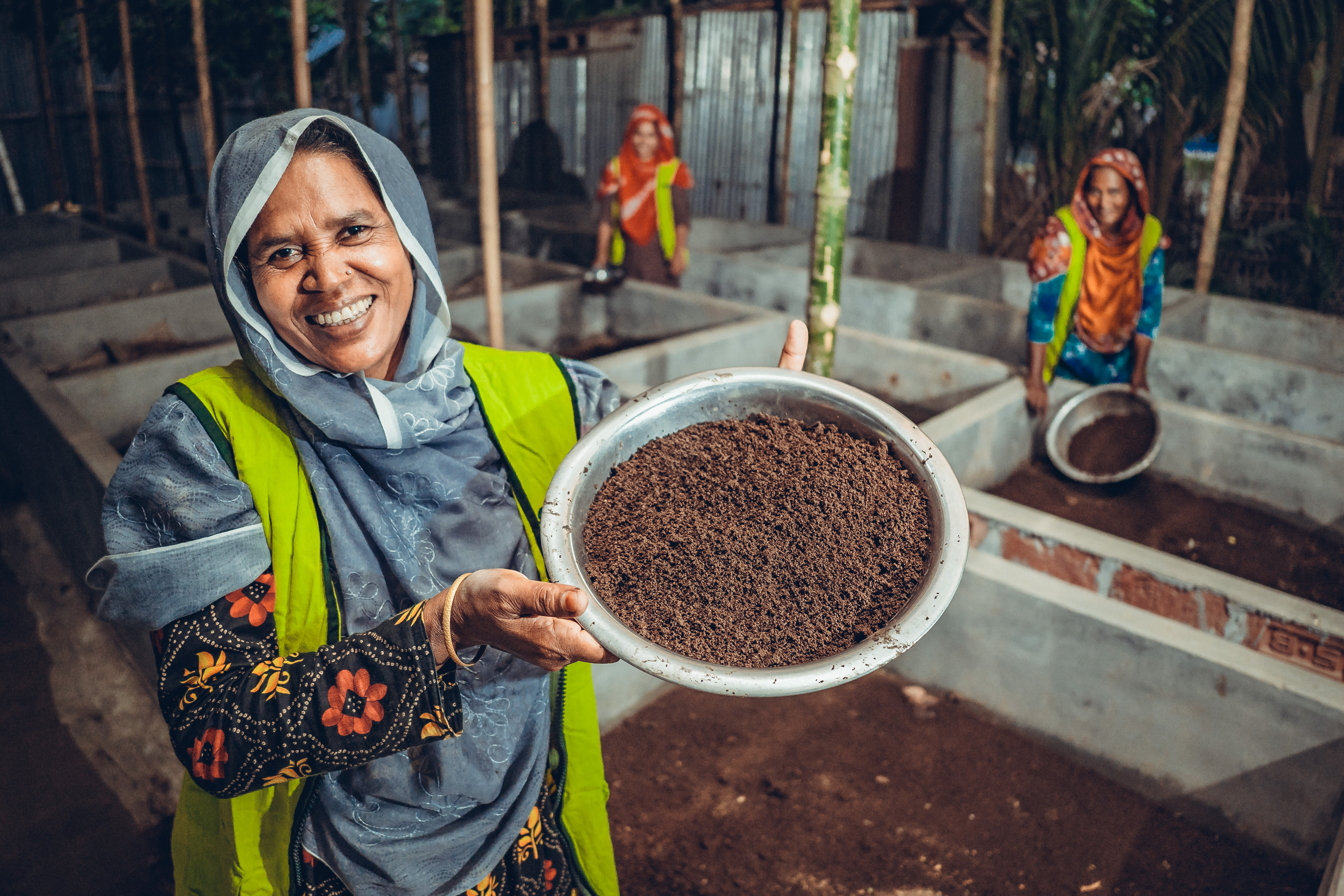Empowering Women and Building Climate Resilience Through Vermicomposting in Northern Bangladesh
“I never thought waste could change our lives,” said Sharitan Begum, gently patting the side of her compost shed in a small village in Kurigram, northern Bangladesh.
Kurigram, one of the most climate-vulnerable districts in the country, sits close to the border. Crisscrossed by rivers, the area faces frequent floods that wash away homes, crops, and livelihoods, leaving families in a cycle of loss and recovery.
For Sharitan, a widow in her sixties, life had always been difficult. She depended on her son Zainal, the family’s only earner. But when illness left him unable to work, everything changed. His wife, Shelley, took a job as a domestic helper just to keep the family afloat. Each monsoon brought new damage, new worries, and a growing sense of helplessness.
Then came a lifeline. The Local Government Initiative on Climate Change (LoGIC) a partnership of the Government of Bangladesh, UNDP, UNCDF, Sweden, and Denmark—identified the family as highly vulnerable. Sharitan received three sheep to start a small livelihood. It was a modest beginning, but one that gave her something she hadn’t felt in a long time: hope.

Women in Kurigram prepare vermicompost beds, transforming organic waste into fertilizer and building climate-resilient livelihoods with LoGIC’s support.
Later, she joined a women’s group supported by LoGIC, which leased a small plot of land for farming. The women worked together, growing crops, building trust, and slowly, rebuilding confidence. But Sharitan wanted something more lasting, something her family could depend on.
